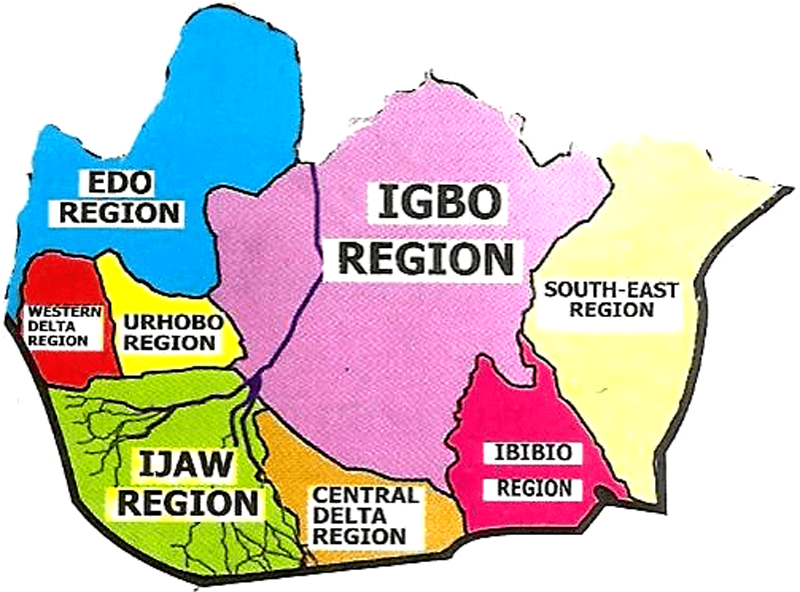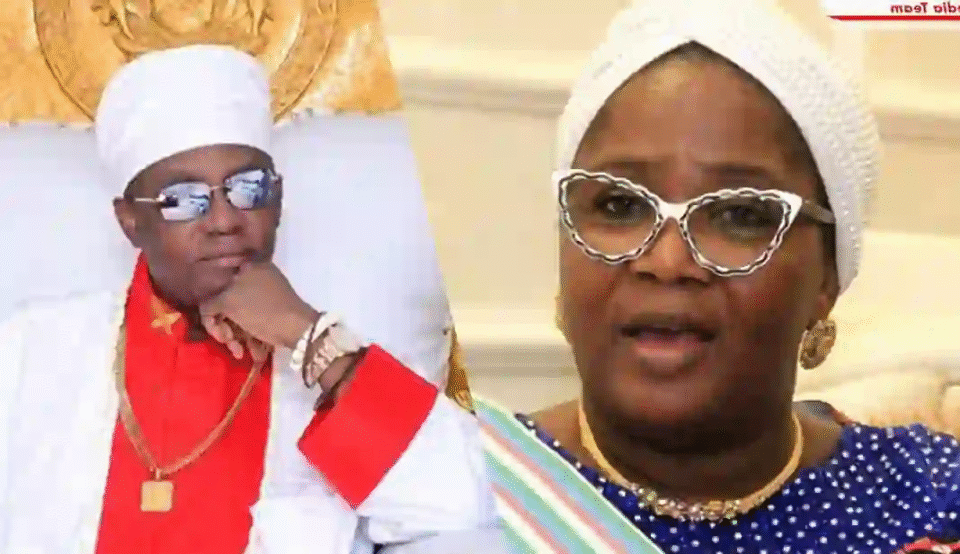Recently there has been a clash between political ambition and cultural tradition in Edo State, involving Folashade Tinubu-Ojo, the Iyaloja-General (national market women’s leader), and the Benin Kingdom under Oba Ewuare II. Mrs Tinubu-Ojo sought to inaugurate a “General Iyaloja of all markets in Edo State,” naming Pastor Josephine Ivbazebule for the role.
The Oba rejected the proposal, arguing that the title “Iyaloja” is alien to Benin tradition, and insisted that the correct role in Edo is the Iyeki, a leader selected by market women in each market and confirmed by the palace after selection. The Iyeki also has cultural and spiritual responsibilities, including duties in shrines linked to markets.
While Mrs Tinubu-Ojo insisted her visit was not to force the title on Edo, the move has been widely interpreted as disrespectful of Edo’s monarch, and symptomatic of how political actors sometimes ignore ancient and living cultural rules for short-term gain. Benin culture is not merely ceremonial; for many in Edo State it is a framework that defines who decides, how authority is respected, how identity is preserved. When culture is overwritten by political expediency, what is lost may be more than a name—it can be dignity, cohesion, and the heritage that binds people.
What makes this especially worrying is a recent, similar episode: a group of Shuwa Arabs, many from the north but resident in Edo State, reportedly attempted to install a “Sultan of the Shuwa Arab of Edo State” in Benin City. This attempt was widely condemned by Edo State Government, who described it as sacrilegious and a threat to peace, and illegal under custom. The invitation for coronation was seen by many as an intrusion on the Benin monarch’s jurisdiction and Edo traditions.
These incidents are not isolated. They point to a pattern that may be more sinister: political actors treating the deep and living cultures of the South-South and South-East as optional, or worse, as obstacles to be overridden. For youths in the more than 70 tribes across these two regions, this should be a wake-up call.
Who Are the Tribes of South-South and South-East; Origins & Shared Bonds
The South-South comprises six states: Edo, Delta, Bayelsa, Rivers, Akwa Ibom, and Cross River. Major tribes include:

- Edo State: Bini (Benin), Esan, Afenmai (also called Edo North), Owan, Ijaw, etc.
- Delta State: Urhobo, Itsekiri, Isoko, Ijaw, Anioma (Igbo in Delta), etc.
- Bayelsa: Predominantly Ijaw, with different Ijaw dialects.
- Rivers State: Ijaw, Ogoni, Ikwerre, among others.
- Akwa Ibom: Ibibio, Annang, Oron, Eket, Obolo, etc.
- Cross River: Efik, Ekoi, Boki, Ikom, and many smaller groups.
The South-East consists of the main Igbo speaking states: Abia, Anambra, Ebonyi, Enugu, Imo. Within them are many sub-groups (e.g. Ngwa, Ohafia, Ndoki, etc.). Some Igbo indigenous, migrated or culturally mixed blend peoples also live in the South-South and the Middle Belt (e.g. Aniocha, Oshimili, Ika, Ndokwa, Enuani in Delta State, Igbanke in Edo State, Ikwerre, Ekpeye, Ogba, Egbema, Ndoni, Etche, Omuma in Rivers State, Obanliku Igbo, Ikom Igbo in Cross River State, Ezza, Effium, Amaezekwe, Ammaekka, Umuoghara, Oriuzor, umuezeoka in Benue State, Igalamela-Odolu LGA (Kogi East) largest cluster of Kogi’s indigenous Igbo communities here, Ugwuebonyi, Ebokwe, Ozara,Amaeke, Amankpo, Amauwani, Amaokwu, Amadiefoha, Amaufulu,Umuochina, Akpanya, Ekwuloko, Nokwa, Ukpabioko, Alome, Amichuru, Ola, Odolu– Ibaji LGA (southern Kogi, Niger River boundary) — smaller Igbo communities reported here-Eke Avurugo, Nwajala, Umuoye, Ubulie-Umueze in Kogi state, Ukanafun LGA Ikot Inyang Udo II aka Ohaobu, Ini LGA Obuagu, Itu-mbonuso, Umubueze in Akwa Ibom State, Sagbama LGA Osekwenike, Abuetor, Eke-Okpokri in Bayelsa State)
Origins: Many tribes in the old eastern region share common cultural and genetic roots. The Benin kingdom (Bini), for example, had influence over parts of what are now Esan, Etsako, etc. The Igbo people have sub-groups that historically occupied lands overlapping today’s South-South. There has been intermarriage, trade, shared cultural practices (e.g. respect for elders, shrine rituals, masquerade ceremonies, market institutions, double wrapper dressing by women, etc).
When was the region “split”? Politically, the modern geopolitical zones of Nigeria (South-South vs South-East) were defined in the post-civil war and post-state creation years. These zones are administrative, not ethnic. They were created by state reorganizations in the 1970s, 1980s, 1990s. The South-East was formally one region (Eastern Region) before the civil war, then East Central and other states created. South-South emerged later as a distinct “zone” under the federal zonal structure to group the Niger Delta states with similar issues (oil, riverine, environmental) etc.
Negative effect of the split:
- Dilution of political voice. When tribes are classified into many small states, or grouped into zones that do not reflect culture, language, or identity, their power to act in concert is weakened.
- Opportunity for outsiders to play divide-and-rule: political actors from other regions may exploit internal differences for votes.
- Cultural erosion: when one tradition is imposed in place of another (e.g. talking of installing “Iyaloja” where “Iyeki” is the recognized tradition), the local heritage is belittled, devalued.
- Economic consequences: markets, leadership positions, resource control often tied to tradition and local institution. When customs are overridden, it can affect who controls trade, property, profits, and how those are divided.
What the Youth Must Do: Towards Unity, Protection, and Prosperity
For the more than 70 tribes of South-South and South-East, especially the young people, the moment calls for action. Not reactive rage, but organized, cultural, political unity.
- Cultural Literacy: Learn deeply about your own tribe’s customs, titles, history. Know who you are, not what others say you are.
- Respect and Revive Traditions: Institutions like the Iyeki, the Oba, chiefs, shrines, festivals: when they are respected and upheld, they become points of strength.
- Regional Solidarity: Even when sub-tribes differ in dialect or particular customs, there is enough shared history to ally. South-South tribes (Edo, Ijaw, Urhobo, Ibibio, Efik, etc.) and South-East tribes (Igbo sub-groups) share riverine, agrarian, market-based economies, shared sufferings under colonialism and resource extraction. Use that common ground.
- Political Organization: Organize beyond just local government; build cross-tribal alliances. Vote with awareness of who respects your culture, tradition, identity. Demand that political office-holders respect customary structures.
- Cultural & Legal Safeguards: Seek laws, state regulations, or customary law that protect roles like Iyeki, the Oba, our shrines and heritage. Push for state recognition that certain offices are protected under culture and cannot be overridden without traditional consent.
- Economic Self-Reliance with Unity: Markets are economic power. Ensuring that market leadership remains under indigenous structures enables economic benefits to stay among local people. Also, cross-tribal trade, shared enterprise can build mutual interest.
Forewarning
Unless there is unity and alertness, the erosion of native traditions, the imposition of foreign or external titles and manipulation of power by political actors can lead to cultural genocide. It may be gradual. Firstly your market rituals are overruled, next your festivals are ignored; then your rights to local leadership are side-lined; and finally, your people’s economic base is appropriated.
The Shuwa Arab “Sultan” episode in Benin is not just about one title—that action was an attempt, seen by many, to shift loyalty and recognition away from the Oba, to introduce parallel authority. If that sort of thing becomes normalized, what is the difference between that and losing the culture that makes you who you are?
The danger is not just to Edo. It is to all minority and majority tribes in South-South and South-East. When we allow our identity to be fragmented, we are inviting political marginalization.
Conclusion
The disrespect shown to the Benin Monarch by attempts to impose Iyaloja in place of Iyeki is more than a local misunderstanding. It is a symptom of a deeper conflict. Who owns culture, controls leadership, which in turn translates into full economic sovereignty
For the youth of both South-South and South-East, the choice is stark, let the erosion continue through disunity, or come together intellectually, culturally and politically, to protect your heritage, reclaim your power, and define your own destiny, else the history of enslavement repeates itself
Editor: Ekpo Larry
SOURCES: ThisDayLive, Rnn, Wikipedia, Nairaland



